Movie Review – Titanic (1997)
Principal Cast : Leonardo DiCaprio, Kate Winslet, Billy Zane, Frances Fisher, Gloria Stuart, Bill Paxton, Suzy Amis, Danny Nucci, David Warner, Jason Barry, Kathy Bates, Victor Gerber, Bernard Hill, Jonathan Hyde, Eric Braeden, Bernard Fox, Ioan Gruffudd, Michael Ensign, Jonathan Evans-Jones.
Synopsis: A seventeen-year-old aristocrat falls in love with a kind, but poor artist aboard the luxurious, ill-fated R.M.S. Titanic.
*****
The success of Titanic has become the stuff of cinematic legend. James Cameron’s sweeping historical epic, blending grand spectacle with an intimate teenage romance, captivated audiences worldwide. It became the first film in history to surpass $1 billion at the box office and, 18 years later, still held the #2 spot. It catapulted Leonardo DiCaprio, then an emerging Hollywood talent, and Kate Winslet, in only her third film, into superstardom. The film also dominated the Academy Awards, winning 11 Oscars, including Best Picture and Best Director for Cameron. His infamous “I’m the king of the world!” acceptance speech may have been a cringe-worthy footnote in Oscar history, but Titanic’s cultural impact remains undeniable. Its influence on blockbuster filmmaking, with an increasing push for larger-than-life spectacle—often achieved today through overreliance on CGI—is still evident. And, of course, we all know what happened to DiCaprio and Winslet’s careers after the film’s debut.
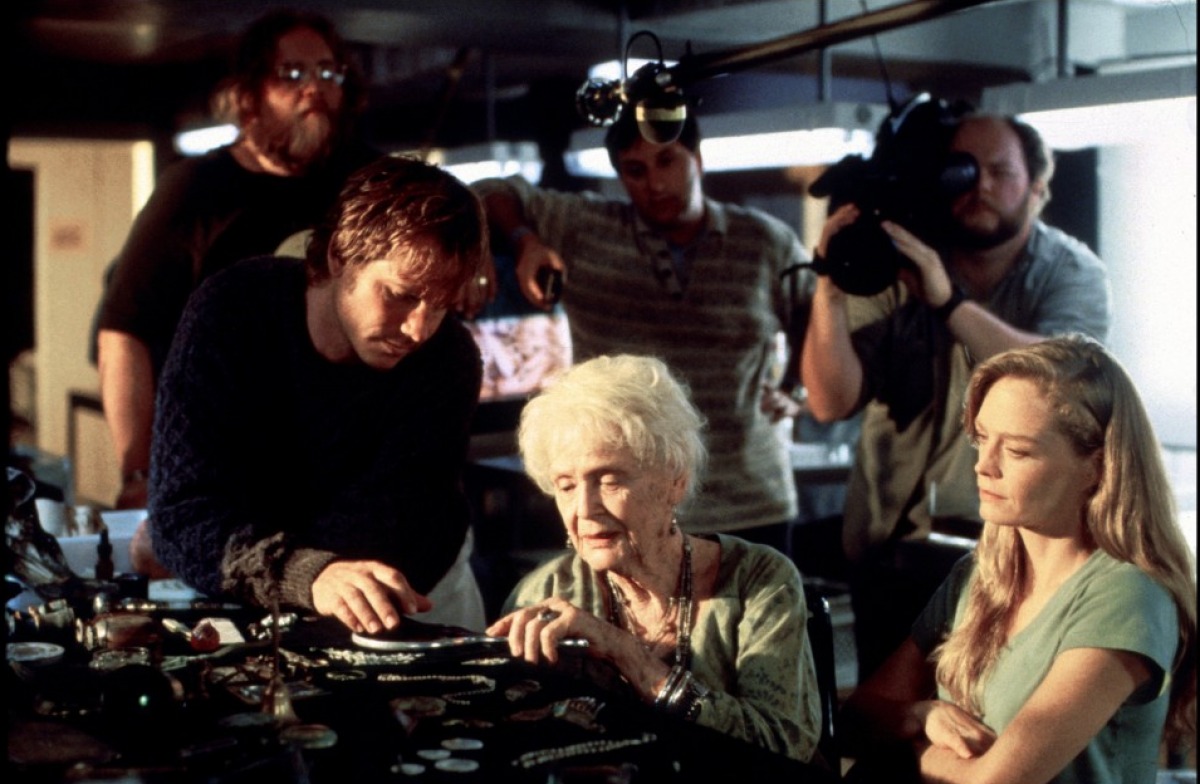
Set in 1912, the film begins at the docks of Southampton, England. Aristocrat Cal Hockley (Billy Zane), his fiancée Rose DeWitt Bukater (Kate Winslet), her overbearing mother (Frances Fisher), and his manservant Lovejoy (David Warner) board the RMS Titanic for its maiden voyage to New York City. Marketed as “unsinkable,” the ship boasts state-of-the-art luxury, a reinforced hull, and assurances from its builder of its invulnerability. Meanwhile, struggling artist Jack Dawson (Leonardo DiCaprio) and his friend Fabrizio (Danny Nucci) win third-class tickets in a last-minute card game, rushing aboard with nothing but dreams. As the ship embarks, Captain Edward Smith (Bernard Hill) and White Star Line’s managing director, Bruce Ismay (Jonathan Hyde), discuss pushing the engines to full power to break the transatlantic speed record. Though initially hesitant, Smith agrees. Above deck, Jack and Fabrizio explore, leading to Jack’s first encounter with Rose. Drawn to her immediately, he soon learns she feels trapped in a loveless engagement to Cal, who values her more as a financial asset than a partner. In a moment of desperation, Rose attempts to throw herself from the ship’s stern, but Jack intervenes. His bravery earns him a temporary place among the upper class, but his growing romance with Rose soon faces insurmountable obstacles—none more devastating than the iceberg that strikes Titanic, breaching its “impenetrable” hull and sealing its fate as one of history’s greatest maritime disasters.
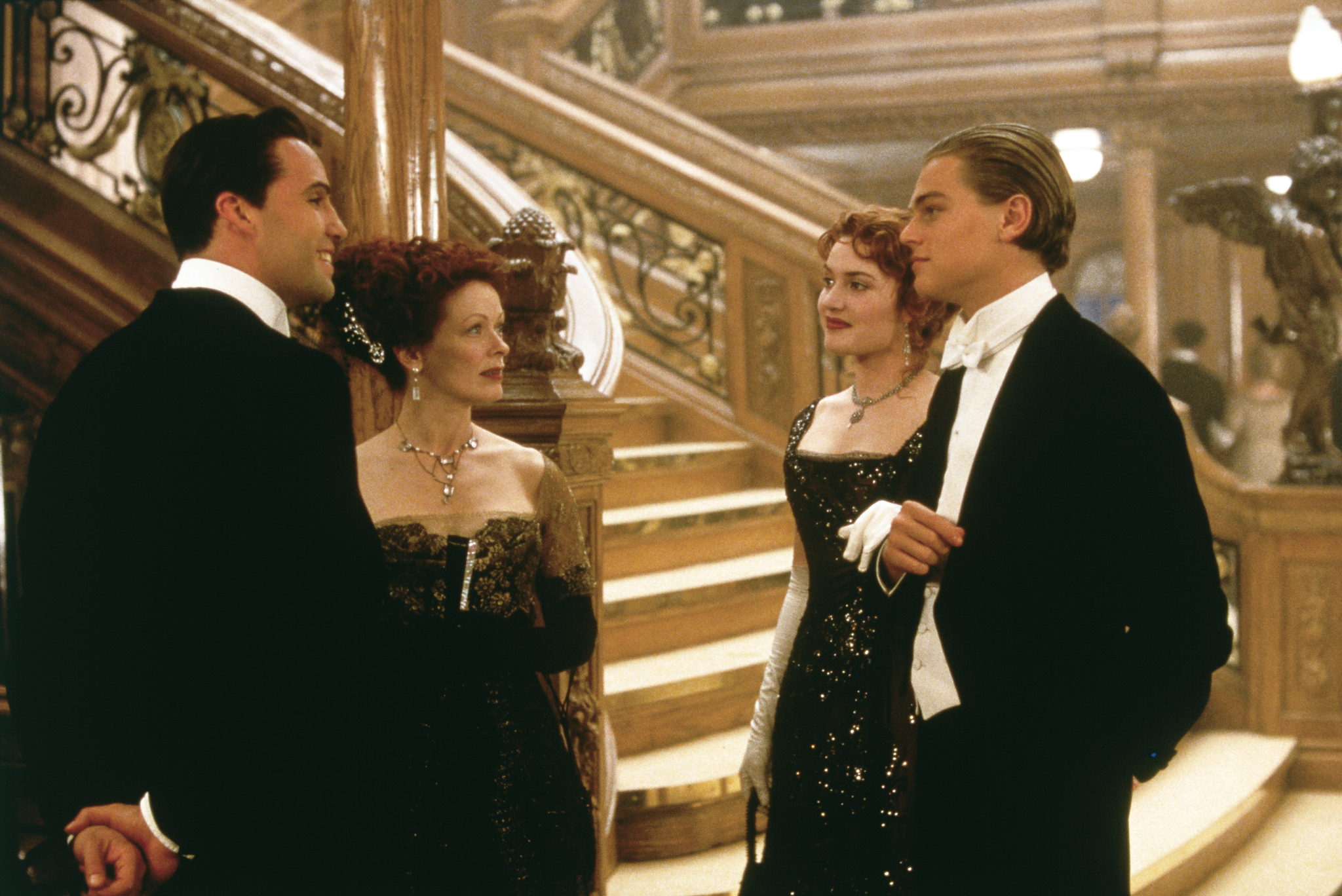
Despite production troubles and budget overruns—including the costly construction of a near-full-scale replica of Titanic’s starboard side off the coast of Baja, California—Cameron’s meticulous attention to detail paid off. His decision to film real footage of the Titanic wreck added haunting authenticity to the film’s imagery. His commitment to historical accuracy and practical effects results in a visually stunning and deeply immersive experience. By framing the disaster through Jack and Rose’s fictional love story, Cameron ensured mass appeal, particularly among teenage audiences, who embraced the romance wholeheartedly. It was a calculated, and undeniably effective, move.
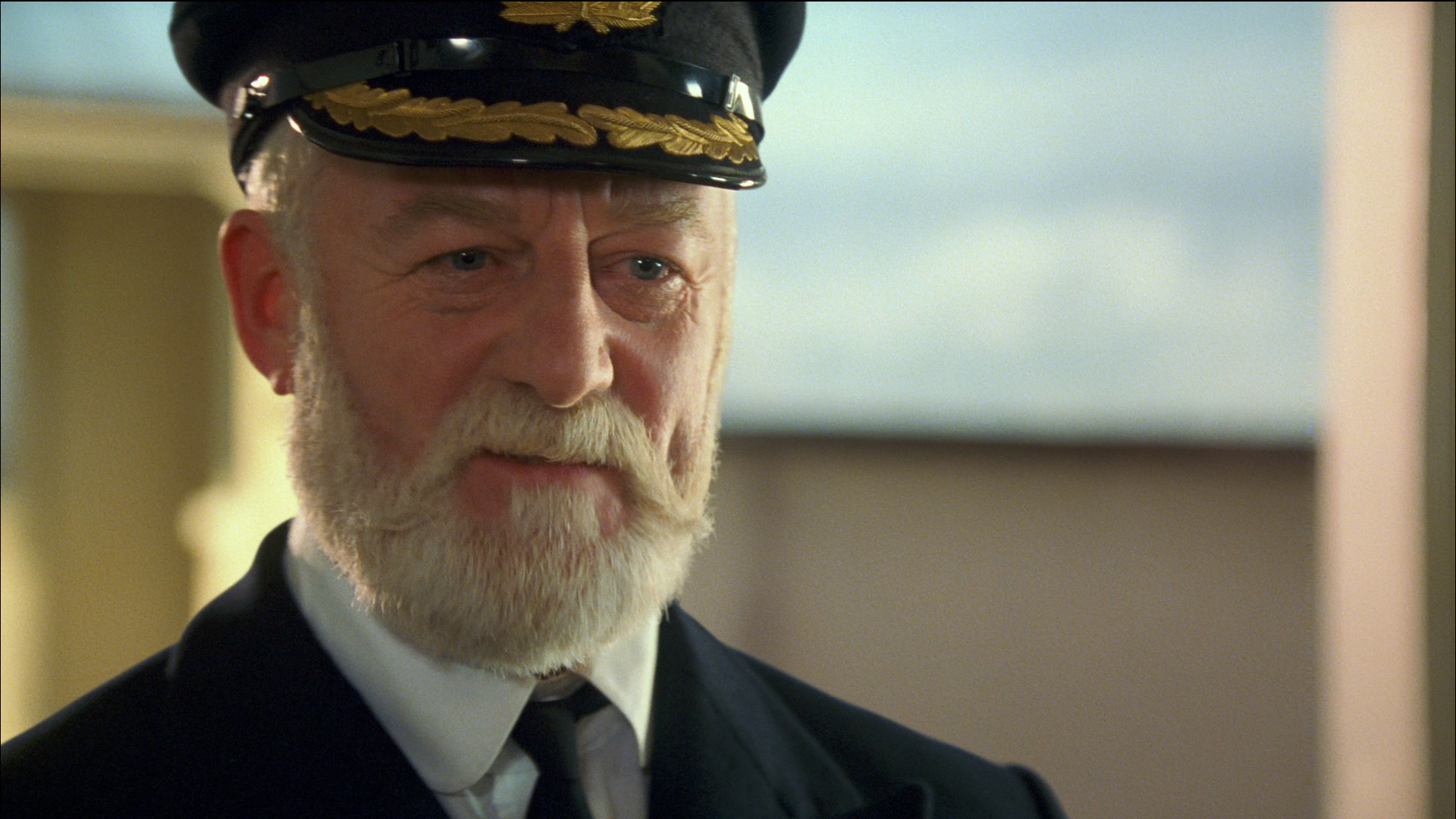
That said, Cameron’s script is far from perfect. His dialogue often feels stilted, with heavy-handed social commentary on class divisions that, while thematically relevant, sometimes lacks subtlety. The film’s romantic exchanges can be overly saccharine, bordering on cliché, and some lines—no matter how earnestly delivered—remain unintentionally amusing. That being said, certain moments shine. Winslet’s fiery retort to Cal, calling him an “unimaginable bastard,” is one of the film’s most underrated lines, delivered with delicious venom.

Strangely, despite its flaws, Titanic’s dialogue remains oddly endearing. The exposition-heavy present-day sequences, featuring Bill Paxton’s deep-sea explorer Brock Lovett and Gloria Stuart’s elderly Rose, provide a simplified history lesson for casual viewers. Though these scenes are essentially a storytelling device, they succeed in keeping the film’s emotional core intact, bridging past and present. Even when the dialogue falters, the sheer sincerity of the performances and the film’s sweeping spectacle carry it through.
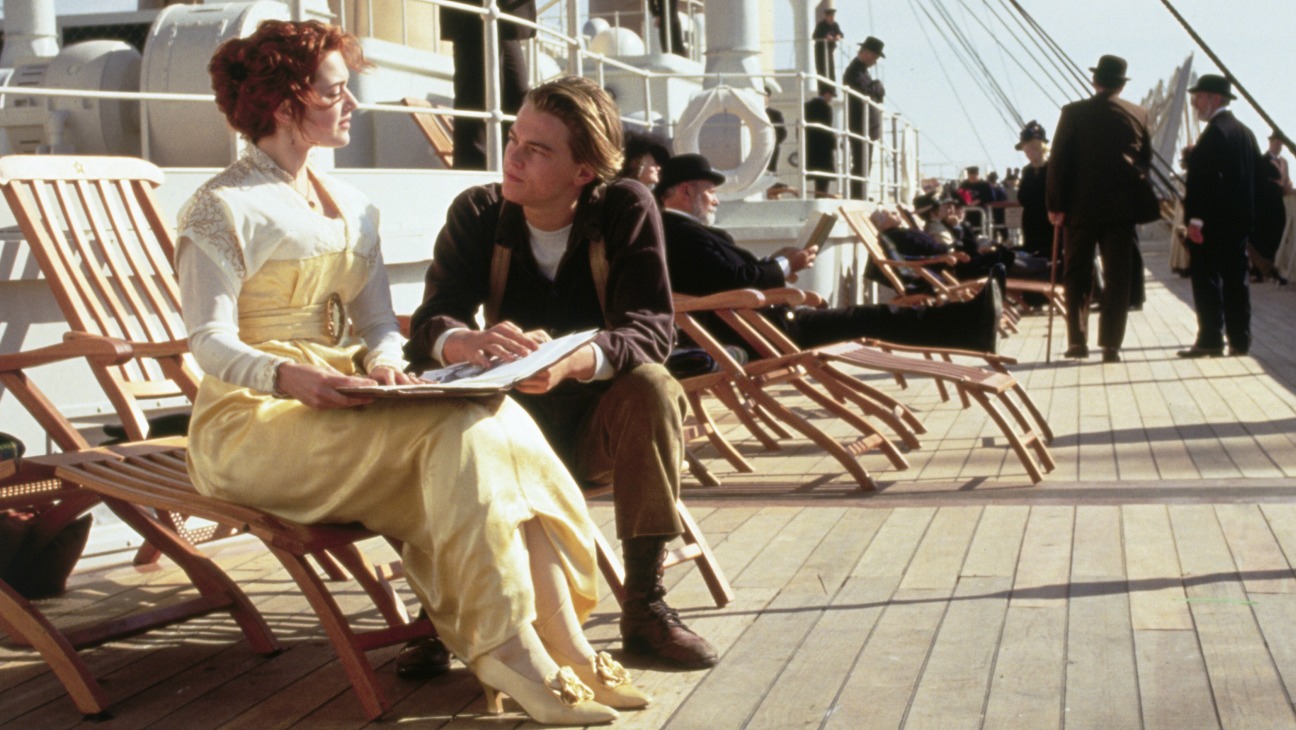
The ensemble cast is exceptional. DiCaprio’s portrayal of Jack, a carefree dreamer with an infectious lust for life, makes him instantly likeable, while Winslet brings depth and warmth to Rose, a young woman torn between duty and desire. However, Rose’s characterisation is somewhat inconsistent. Cameron’s attempt to craft her as a strong, independent woman is undermined by her frequent reliance on Jack for guidance. While she does make bold choices, she often appears more reactive than proactive, which slightly diminishes her arc. Nevertheless, Winslet’s luminous performance ensures Rose remains compelling.
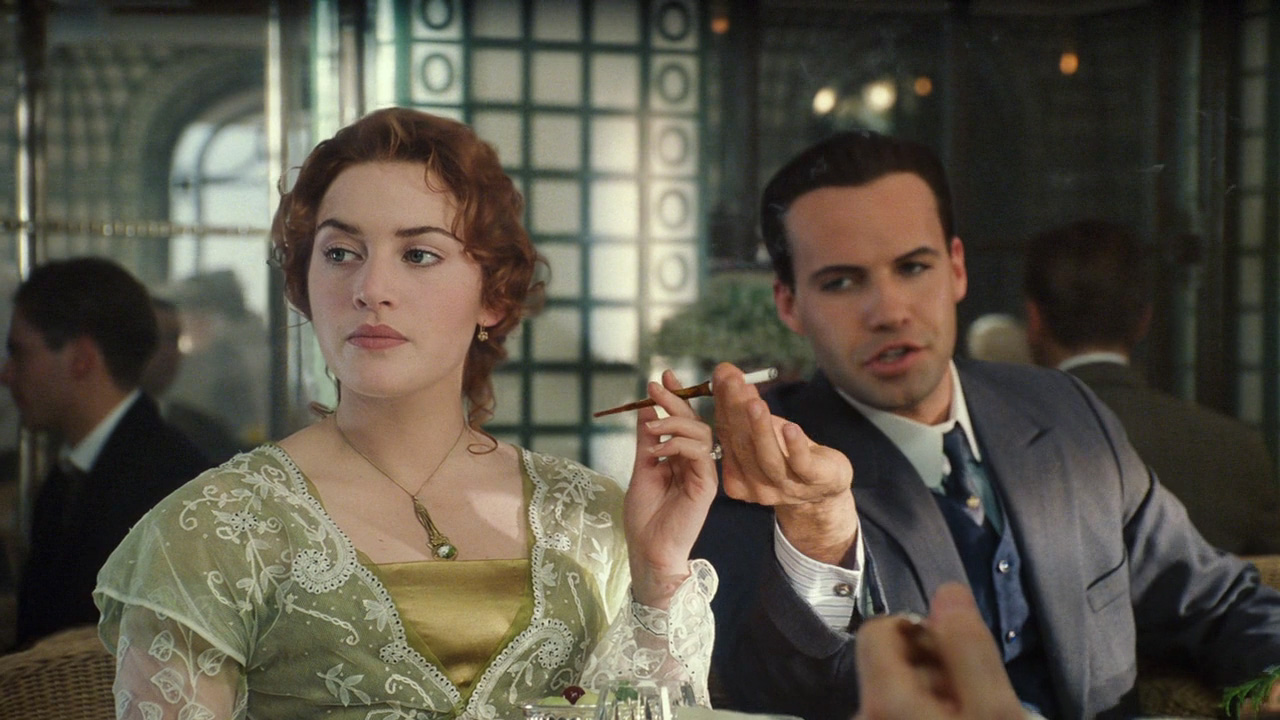
Billy Zane revels in his role as the arrogant and possessive Cal, chewing scenery with villainous glee. David Warner exudes quiet menace as Lovejoy, while Frances Fisher is superb as Rose’s controlling mother. Kathy Bates steals scenes as the irrepressible “Unsinkable” Molly Brown, injecting warmth and humour. Victor Garber’s heartfelt turn as Titanic’s chief architect, Thomas Andrews, adds poignancy, particularly in his final moments. Bernard Hill delivers gravitas as Captain Smith, his face etched with despair as he realises the inevitable. The supporting cast lends authenticity to the film’s portrayal of the ship’s passengers, from the wealthy elite to the struggling immigrants in steerage.
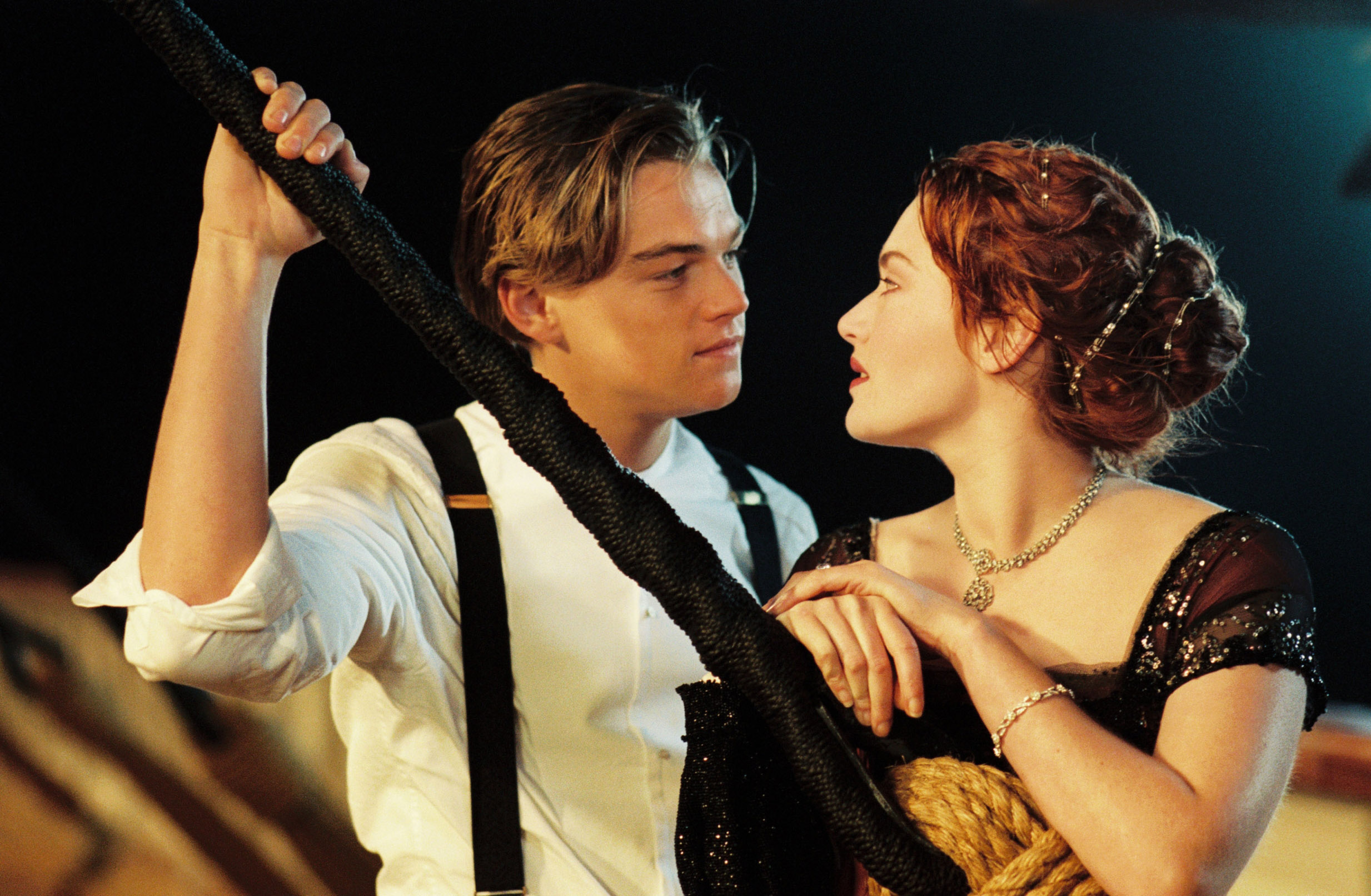
Visually, Titanic remains a triumph. Cameron’s mastery of practical effects, combined with judicious CGI, creates breathtaking imagery. The film’s cinematography captures both the grandeur of the Titanic and the horror of its demise. The haunting shots of the ship sinking beneath the icy Atlantic, its lights flickering against the dark abyss, are unforgettable. The decision to use large-scale sets and in-camera effects rather than relying entirely on green screen adds a tangible realism that many modern blockbusters lack. The painstakingly recreated interiors—ranging from opulent first-class dining halls to the cramped, lively steerage quarters—immerse the audience in 1912’s social landscape. The moment the Titanic splits in two, sending desperate passengers plunging into the freezing ocean, remains one of the most harrowing sequences in film history.
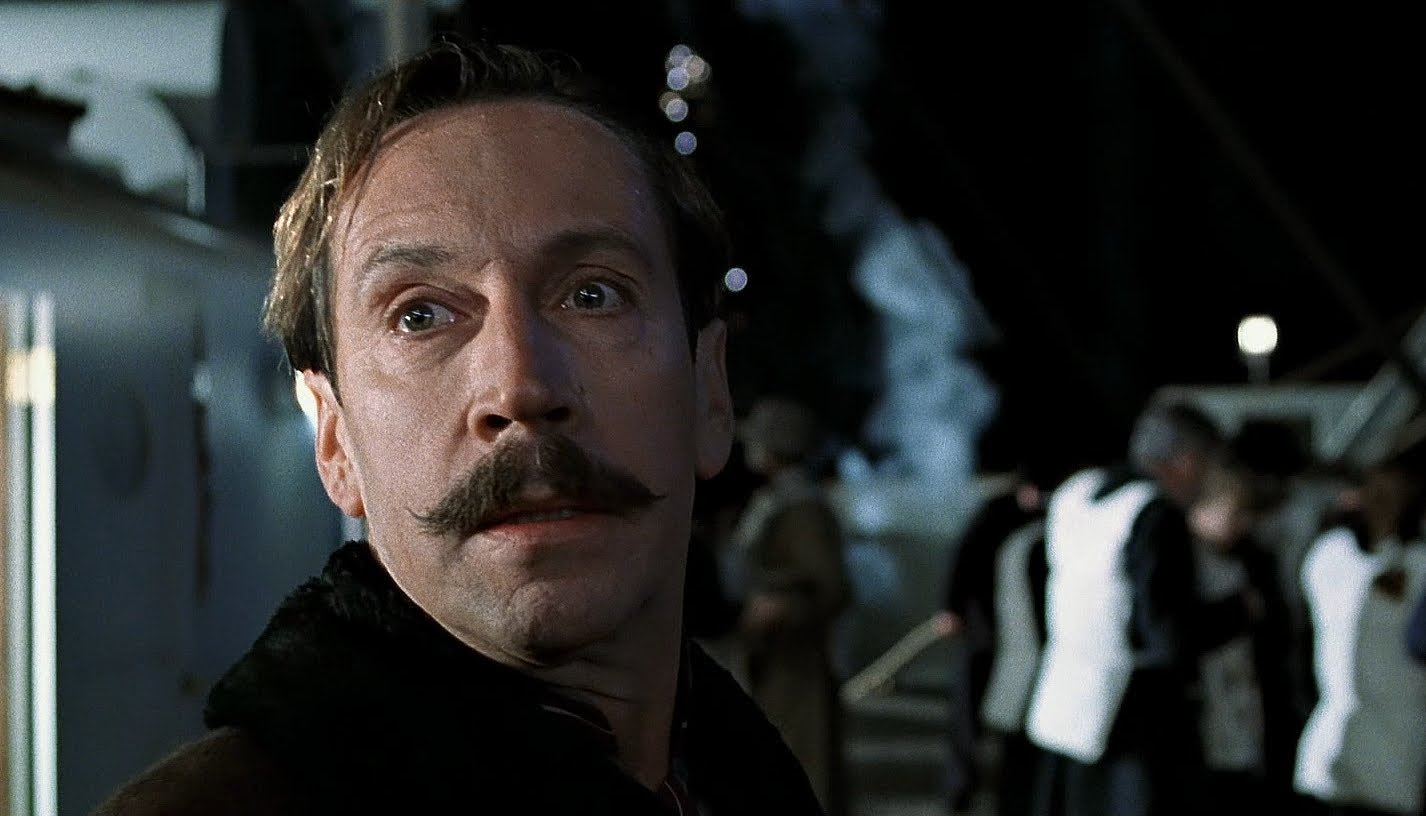
For all its criticisms—its melodrama, its “Romeo and Juliet at sea” romance, its sometimes-questionable dialogue—Titanic endures because it works. It’s an emotionally charged, visually spectacular epic that blends history, tragedy, and romance with stunning craftsmanship. From the moment that grainy sepia film transitions into brilliant Technicolor, immersing us in Titanic’s world, the illusion is complete. No amount of cynicism can erase the power of Cameron’s vision. While many of the film’s narrative weaknesses carried over into Avatar, audiences embraced both films as sheer entertainment. Titanic may not be a history lesson in the strictest sense, but it remains a compelling reimagining of one of the world’s most infamous disasters.
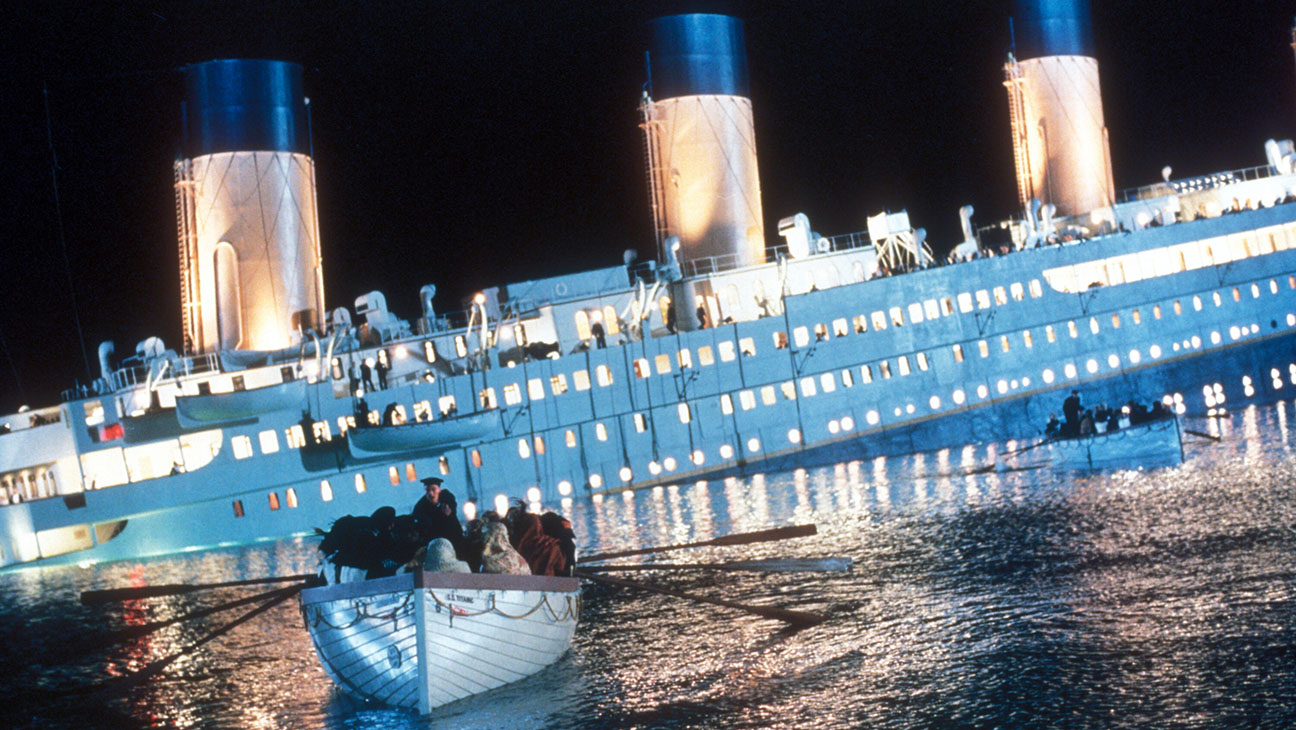
Even now, in an era dominated by CGI-laden blockbusters, Titanic retains its impact. Cameron’s technical achievements and storytelling prowess have cemented the film’s place in cinematic history. From its unforgettable moments—Jack’s iconic “I’m the king of the world!”, the sunset kiss, “She’s made of iron, sir. I assure you, she can sink,” the steamy backseat tryst—to James Horner’s haunting score, Titanic has left an indelible mark on pop culture. It is, undeniably, a legend of the silver screen. And rightfully so. As an all-encompassing cinematic experience, Titanic sails into eternity.

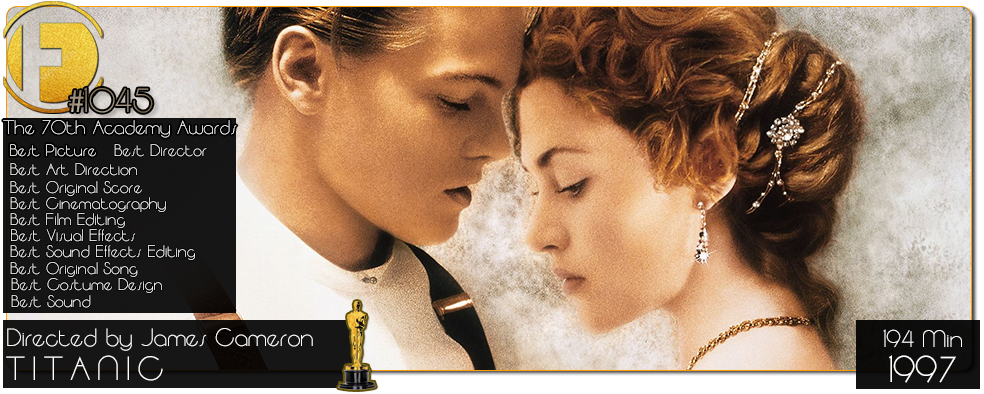
It’s quite hokey for much of the runtime. Its saving graces are the performances and the still-stunning visuals.
I agree – even in HD the effects still hold up, which not a lot of films from that time can say. *coughThePhantomMenacecough*
I don't think it's as bad as people make it out to be, but it is trite and hokey for much of the runtime. Its saving graces are the performances and the still-stunning visuals.
My recent post The Film Emotion Blogathon
Yep, yep, and yep. Spot on, my friend.